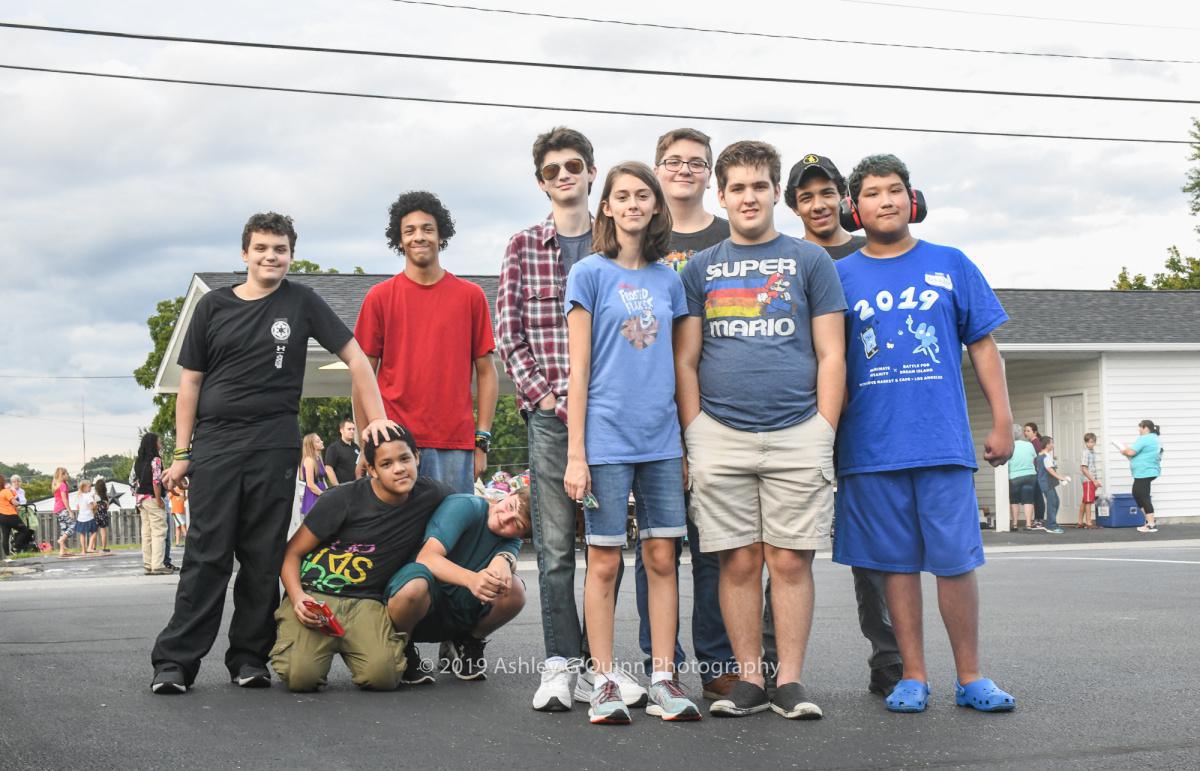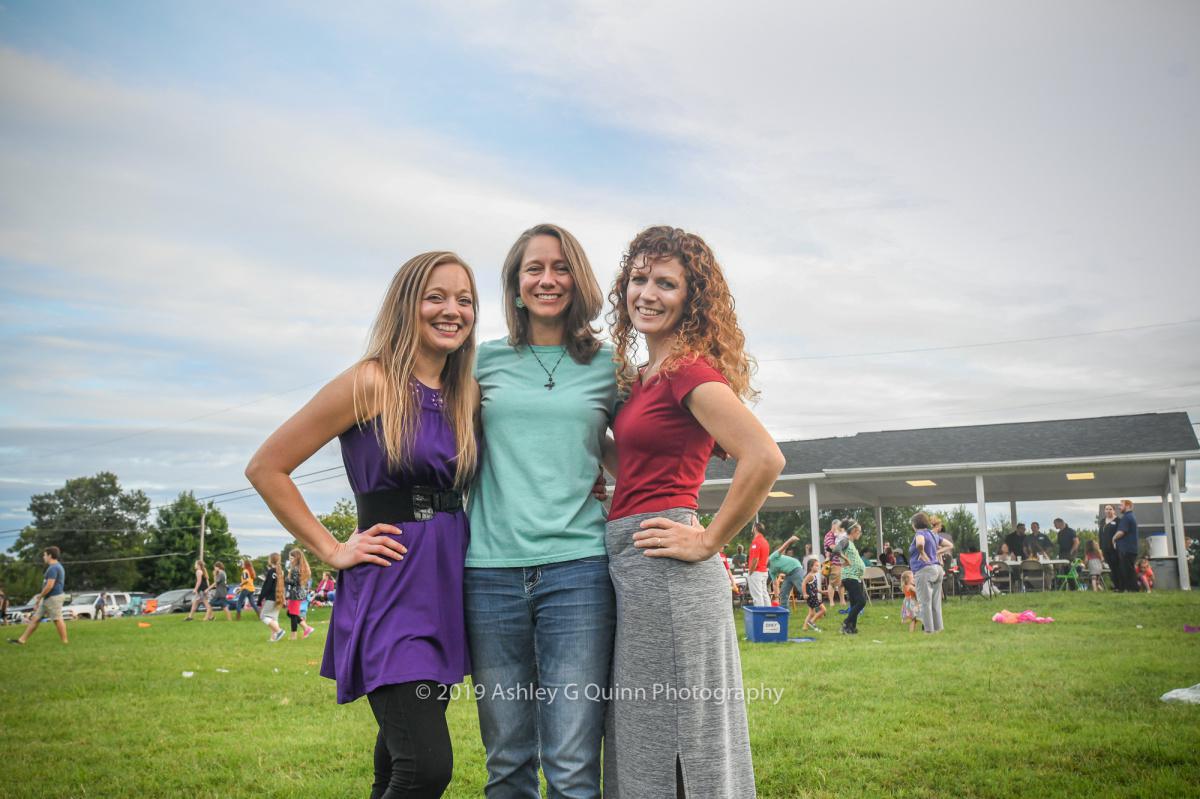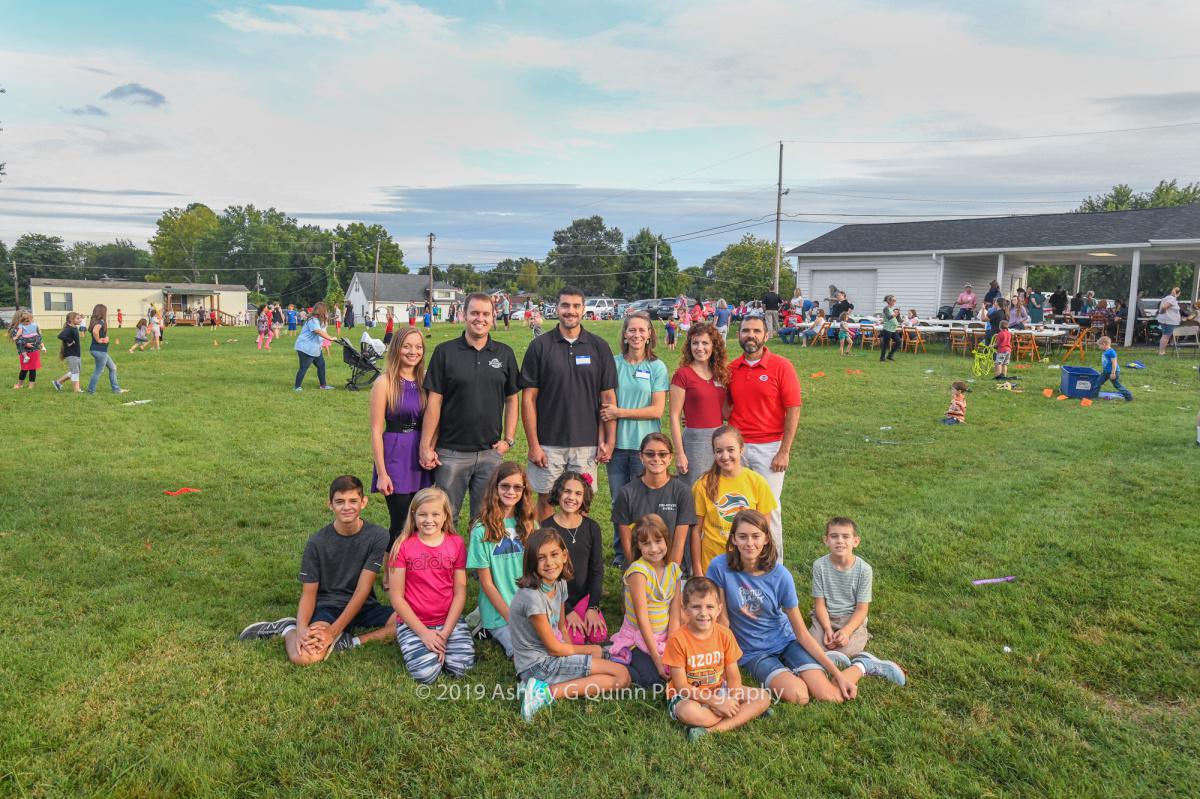What constitutes a “good, well-rounded,” education? Ask a dozen parents and you will get as many different answers as they have children. For an increasing number of the world’s children, their parents are choosing to forego traditional public and private schools in order to craft a primary education that is inline with their values and standards and provides their definition of a “good, well-rounded education.”
According to the National Center for Educational Statistics, just under three percent – or roughly two million - American students are homeschooled. That number has risen steadily since 1993 when homeschooling became a legal option in all 50 states. It is expected to continue doing so; it is the fastest growing form of education in the U.S.
In Kentucky, the Department of Education reports that during the 2017-2018 school year of 734,000 school-aged children, fewer than 22,000 were homeschooled. In Ohio, the number was 58,000 out of 1.9 million.
Locally, there is a diverse group of homeschool students, many of whom come together through a local chapter of the Christian Home Educators Fellowship (C.H.E.F.). C.H.E.F. is a support group that connects homeschool families via group lessons, curriculum support, field trips and outings, standardized testing, and a host of other activities including sports and service clubs. It is also a lobbying organization, which worked with state legislators and educators to develop a set of best practices for homeschooling.
Four local homeschool families with children ranging in ages from six to 16 shared their stories and reasons for homeschooling with Bridges. All four belong to C.H.E.F.
Philip and Teresa Hardesty, of Ashland, have homeschooled their four children - Mary Lara, 15; Joseph, 13; Katie Beth, 11; and James, 8 - for their entire academic careers. Teresa explained their choice, “I wanted that experience - I wanted to teach them to read. I wanted to take them on field trips and tell them the stories of Jamestown and Roanoke. It sounded exciting and fun.”
Her family uses what is called a “box” curriculum, which they obtain through the Kolbe Academy. The Catholic-based program provides the family with course plans and textbooks, weekly and daily lesson plans and activities, along with grading logs and teacher’s guides. “We didn’t want to reinvent the wheel, and we wanted to make sure all our boxes are checked,” she explained. “We are very structured, type-A personalities. A lot of people like to do their own.”
Jason and Lisa Vititoe, of Ashland, also have four children - Talia, 12; Ariella, 10; Asher, 8; and Ezra, 6 - who have never attended a traditional school. Lisa Vititoe, too, craved being the one to teach her children. She also desired spending so much time together as her family grew – a common theme among many homeschool moms. For her, character development was also very important. She’s noticed her children don’t share many of the same struggles she had growing up – including insecurities about material items like clothing. “They all proudly march to their own beat,” she said.
Nathan and Davonne Packs have two daughters: Lily, 14 and Grace, 10. Davonne is a homeschool graduate herself, having attended a mixture of public and private schools for her K-12 education. She always wanted to homeschool but her husband needed convinced. “We started for religious reasons,” she said, “but we’ve continued for many other reasons.” Homeschooled children are statistically more likely to have the same values as their parents as compared to publicly educated children, which was important to the Packs.
The Packs own a small business and both work full time, so they use what Davonne describes as “open and go” curriculum. She chooses programs that allow her children to independently navigate the coursework. “I make sure they have the tools they need to succeed,” she said, adding this hands-off approach “motivates them.” Most years, her children have completed their textbooks by February or March and spend the remainder of the academic year doing experiments, field trips and other fun lessons.
James and Kelli Beaumont have five children. They started their two oldest children in public schools before making the switch when their daughter Avery, now 16, was in third grade. She “wasn’t thriving,” in public school, which required Kelli to spend her entire evening helping reteach the daily lessons. When James suggested Kelli “work smarter and not harder,” they withdrew Avery and began to teach her at home. Kelli loved it and Avery thrived.
“I realized it fit my personality,” she said. They soon withdrew their second child Kyler, now 14, from public school and their youngest three children Carter, 13; Audrey, 12; and Riley, 11; have been homeschooled for their entire academic careers.
“As a home school mom, I am an enthusiastic supporter of school choice,” added Beaumont. “You have to find out what God is calling you to do – or what is best for your family. No matter what choice you make, you are giving something up. The true benefit is you can teach what you feel compelled to teach,” Kelli Beaumont said.
One of the things homeschool children “give up” is sanctioned high school sports. What they often gain, say their parents, is closeness with their family born from additional time together and a less hectic schedule. “If my kids were in school, they would be up early and home late – not to mention all the activities – I just wouldn’t get much time with them. I don’t want to have those regrets – the time I would have lost,” explained Devonne. “I’ve gotten to see my children grow and mature and gotten closer to them.”
Another misnomer about homeschooled children is that they are “weird” or “unsocialized.” Nothing, all four mothers insist, could be farther from the truth. Their children are all involved in a host of extracurriculars that range from archery to swimming and community theatre to martial arts and scouting, which socializes them with other children and adults. “I don’t know any homeschoolers that aren’t involved in anything social; it’s just what social activities they are involved in,” said Hardesty.
All the mothers said they believe homeschooling has exposed their children to more diversity – students and adults of different ages, ethnicities and abilities - than they would have been at public schools. They also tout their students’ independence and confidence, which they believe comes from sharing a responsibility for their education at an early age.
Homeschool Laws:
Each state has its own homeschooling law and/or requirements that have to be met. The National Home Education Research Institute characterizes Kentucky as having “few” laws, while Ohio and West Virginia have “moderate” laws.
Kentucky does not have a specific homeschool law and there is no legal definition of “homeschool” in the Kentucky Revised Statute. Home schools are the equivalent of private schools and must meet the same requirements. These are: a student’s home district must be notified of a parent’s intent to homeschool within two weeks of the start of school; a student is required to get at least as many hours and days of instruction as a public school student; they must be instructed in core subjects in English; attendance and scholarship reports must be kept.
Ohio and West Virginia require standardized testing annually. They also set a minimum level of education required for a homeschooling parent or administration – a high school diploma.



